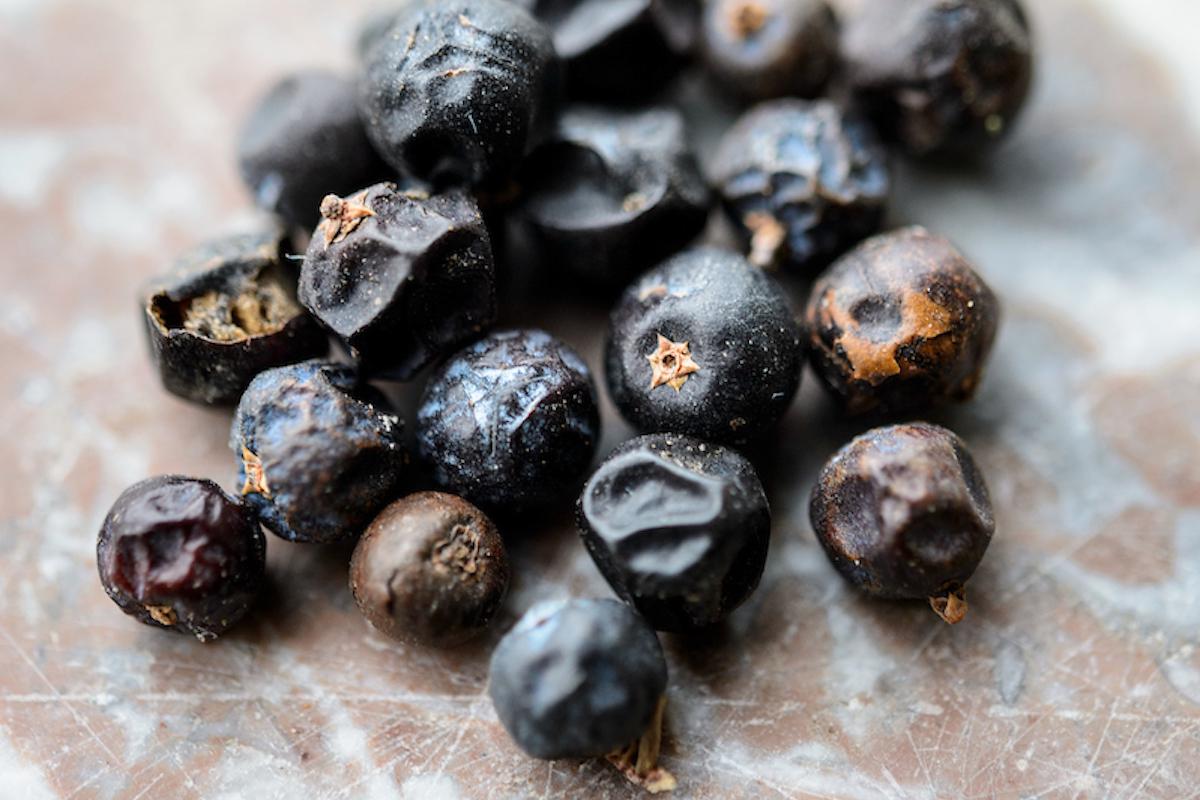5 September 2019
Tips from the herbalist
Tips from the Exmoor Herbalist: September
The Exmoor Herbalist Jane Wallwork looks at Juniper and Angelica as we reluctantly say goodbye to the summer.
"Lammas has passed and as the Earth's cycle moves to the Autumn Equinox, we have great hopes for an Indian Summer - catching the last warm rays of the sun with the scents of summer just gone fragrant on the wind... Evenings in the garden with a delicious gin and tonic!
One of the most important flavours in gin is Juniper, and the old Dutch name “Genever” is derived from the Latin Juniperus. The juniper tree has been growing in the British Isles since the last ice age and was certainly well known to the ancient Celts. Considered a sacred tree, they would use the berries in ritual incense for purification and to bring good health and protective energies to the home.
Medicinally, juniper berries have both diuretic and antiseptic properties and a herbalist may use them as part of a blend of herbs for an infusion to assist with urinary tract infections. In Scotland a traditional fortifying tea was made from heather and juniper to help purify the blood. In addition, juniper will also stimulate digestion making a G&T the perfect aperitif.
As a culinary herb, juniper pairs well with lamb and an aromatic gravy can be made with red wine, rosemary and a couple of juniper berries. Add a little red currant jelly and you have the perfect accompaniment to roast vegetables, roast lamb and a nut roast. As a lover of chalky soil, juniper was said to help give Southdown lamb its distinctive flavour as sheep have fondness for the berries.
In skin care, juniper hydrosol is very helpful for oily or blemish prone skin. It is highly astringent and also reduces puffiness and inflammation. A topical treatment for oedema can made using a decoction of juniper berries with cider vinegar and adding this to a foot bath. The vinegar can also be an unusual yet tasty part of a salad dressing combined with marigold oil and a little mustard powder.
Angelica, also known as masterwort, is another popular herb included in many gin recipes. Its Latin name is Angelica archangelica, named after an angel whose apparition announced Angelica to be a cure for the plague and was chewed to fend off infection during the Great Plague of 1665-6. It too is a valuable herb of protection, bringing good energies into ones life and manifesting good health. The root makes a pungent addition to ritual incense blends and is considered as a herb of Atlantis. As a symbol of good fortune it has been used as a gambling talisman.
As a healing herb angelica is a warming aromatic tonic. It aids digestion, balances female hormones, helps to reduce fever and can also help to elevate low mood. A decoction or tincture of the root can also be applied externally to alleviate sprains, muscle and joint pain and bruising.
Angelica is also used in baking and sweet manufacture. It can be added to sour fruit such as gooseberries or rhubarb to reduce the sour taste and sweeten up the fruit. Angelica seeds are also used to make vermouth, a perfect accompaniment to gin… Just add an olive and enjoy!"


